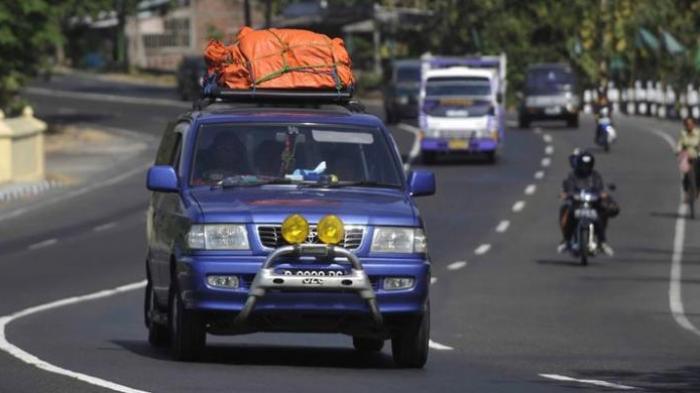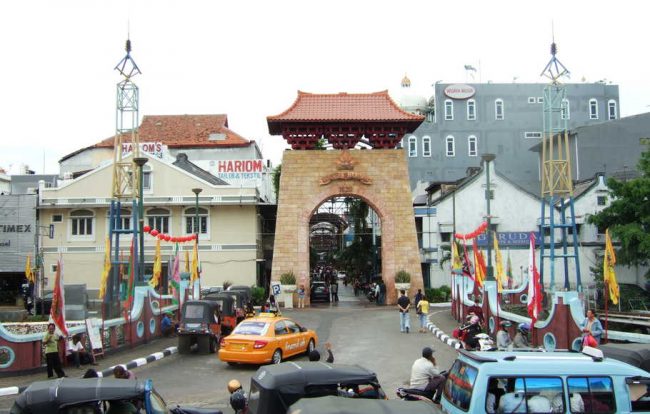Lebaran is a religious celebration that occurs after the fasting period of Ramadan. It is also dubbed as ‘hari kemenangan‘ or ‘the day of victory‘. Because Jakarta is a city filled with a variety of different people from many parts of Indonesia, all of them celebrate Lebaran differently to one another. One thing that is done commonly to majority parts of Indonesia is called ‘mudik’.
Mudik is the annual exodus tradition by the Muslim population in Indonesia to celebrate the ‘day of victory’. This is done on a short time period, solely to see their family after being away from home. It is also seen as the time when prices of transportation skyrockets immense traffic all around Jakarta.
Due to the Covid pandemic, mudik in Indonesia was banned in 2020 and 2021, to prevent spread of the virus. This year in 2022, people can again go to their hometowns and villages to celebrate.
Origin
The origin of mudik started as early as the Majapahit era. At that time, officials were sent as leaders all throughout the empire to maintain control of their designated areas. Islam has already penetrated Indonesia at that time, so Idul Fitri became a prominent day for everyone. To fulfill their official duties, bureaucrats will return to the palace and report to the Emperor while simultaneously visiting their hometown. This practice still continues until today with the term ‘mudik’.
In Javanese, mudik can be translated as ‘mulih disik’ ,which meant ‘going home (for awhile)’. Betawis translate it as ‘kembali ke mudik’. ‘Udik‘ is translated as ‘hometown’, therefore ‘mudik’ is the simple form of ‘going back to my hometown’. Interestingly, ‘mudik’ only became popular during the 70s, and is coined as the term when settlers return to their hometown in the event of a religious celebration.
Nowadays, it is seen as the perfect opportunity for settlers to gather and greet extended family members they do not meet regularly. Other than that, mudik is also seen as the time when Indonesians arrive at their hometowns in an extravagant fashion to show off their accomplishments. Other than that, some would visit their ancestors’ grave to ask for blessings in their life endeavors.
Before Mudik
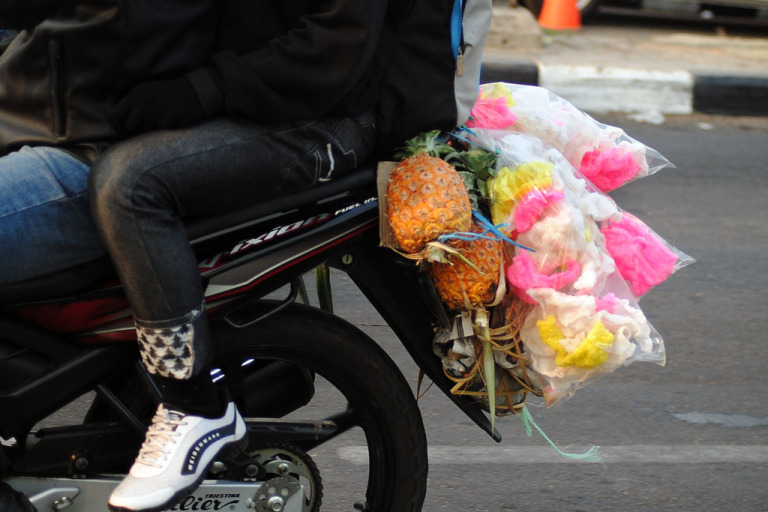
Before mudik, the Indonesians usually prepare for their journey by buying oleh-oleh or gifts for loved ones in their hometown. Hence, markets and shopping areas will be completely crowded and many items will be sold out during this time. Other than oleh-oleh, people will also prepare tunjangan hari raya or religious holiday allowance for family members.
During Mudik
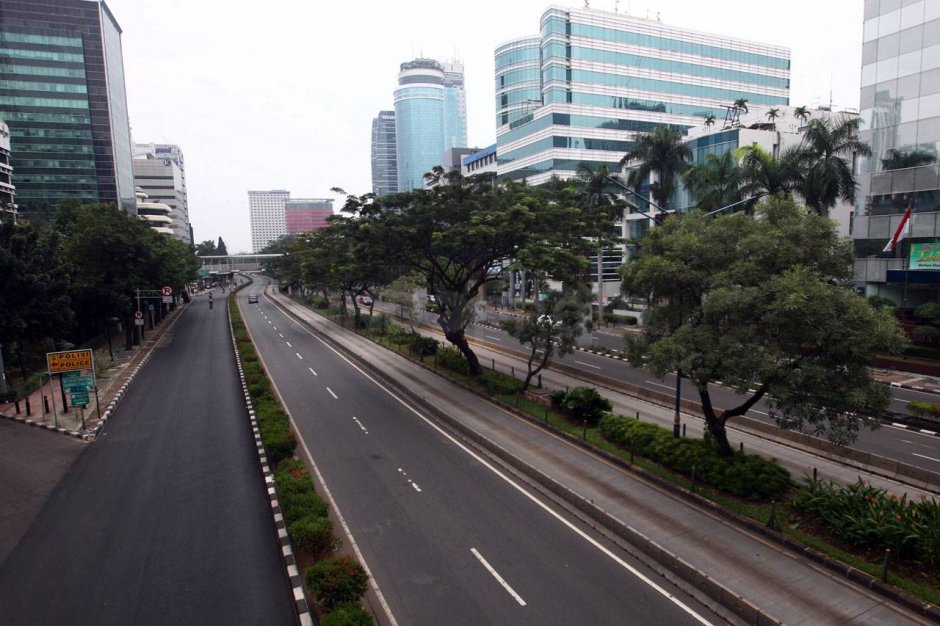
One upside to mudik is the deserted state of Jakarta, in contrast to the daily traffic which it’s known for. At this time, most of its inhabitants will likely travel to their hometowns to meet their loved ones, while the rest of the city’s inhabitants stay in hotels to accommodate the absences of their domestic help. Otherwise, they will travel elsewhere.
There are also certain exceptions to the population who does mudik, for instance the Madurese and Indonesian Christians. The Madurese prefer to do mudik a week prior to Eid ul Adha, while the latter prefer to travel before Christmastime.
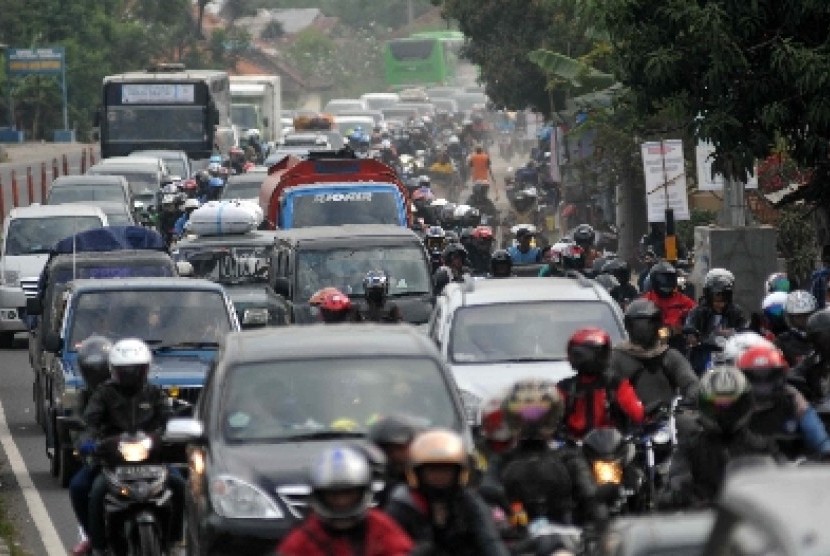
Make no mistake, journeys to villages and popular vacation spots will be extremely crowded. It’s not rare that people take more than a day to travel by land, because of the heavy traffic around Jakarta.
Not only heavier traffic, but public transportation will also be in higher demand. Some airlines might even add extra planes or provide larger planes to accommodate this surge in demand. This is the same with trains, as Kereta Api Indonesia would create additional train trips and provide longer trains with more cars. Intercity and Interprovince buses will also tend to charge higher during these seasons.
Here are the places that are predicted to be filled with traffic during mudik:
- Rest Area in Cikampek Toll
- Entrance of Cikarang Utama Toll
- Entrance of Palimanan Toll
- Arterial Expressways kawasan Pasar Tonjong dan Pasar Karangsawah, Brebes, Jawa Tengah. Apalagi di sekitar Pasar Karangsawah tengah dibangun underpass.
- Kali Kuto Bridge Along Batang-Semarang Toll
- Pantura-Pansela Intersection
For those who want to explore Jakarta, Lebaran is the perfect time to do that. The roads are deserted, without the bothersome traffic that would have been present otherwise. For Jakarta inhabitants, lebaran is the perfect time to relax and travel someplace to relieve their stress.

